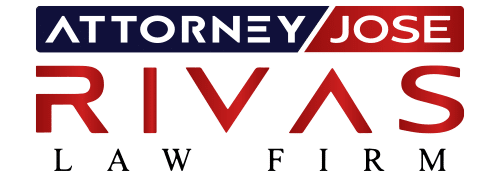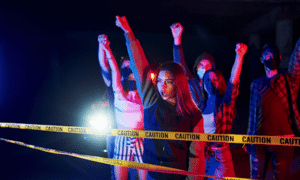A new law creating a 25-foot “no-go” zone to prevent bystanders from harassing first responders is raising concern from activists and civil liberties groups, who say the measure is meant to discourage the public from documenting police misconduct. Legislators insist that the bill aims to protect first responders from interference by those seeking to monetize sensational videos they post on the internet. The bill defines a first responder as a law enforcement officer, a correctional probation officer, a firefighter, or an emergency medical care provider.
Governor DeSantis is expected to sign the bill, which would go into effect on January 1st, 2025. Under the measure, It would be considered a second-degree misdemeanor for anyone who, after receiving a warning, approaches or remains within 25 feet of working first responders to intentionally harass, threaten, impede, or interfere with their duties. A conviction could mean up to 60 days in jail and a fine of up to $500.
The law against harassing first responders is strongly supported by law enforcement. “What we’re seeing more and more is this aggressive, dangerous behavior that causes danger to my deputies, officer safety, and police officers throughout the state of Florida with this nonsense,” Volusia County Sheriff Mike Chitwood told Fox 35 Orlando. “The minute you get into a deputy’s face, the minute you start disregarding lawful orders, now you’re creating a dangerous situation. You’re committing a crime, you’re going to get ticketed and get locked up,” he said.
Orlando Criminal Defense Attorney Jose Rivas on Law Against Harassing First Responders
Orlando criminal defense attorney Jose Rivas suggested the new law against harassing first responders is not necessary. “There are already laws against interfering with a law enforcement officer or first responder performing their duties,” Rivas said. “Interference without violence and interference with violence are covered under the Obstructing Justice law.”
Interfering with an officer without violence is a first-degree misdemeanor, punishable by up to a year in jail, probation, and a fine of up to $1,000. Interfering with violence is a third-degree felony that comes with a prison sentence of up to five years, probation, and a fine of up to $5,000.
“So officers are already protected. What they are doing under the new law is creating a distance, stating that you cannot approach within 25 feet of an officer or a first responder who are engaged in their duty,” Rivas said. “This can be beneficial, but the law against harassing first responders essentially duplicates a protection that officers already have.”
Constitutional Implications and First Amendment Rights
Critics argue that the bill limits the public’s ability to document incidents of police misconduct and hold law enforcement accountable. Democratic Rep. Ashley Gantt of Miami has concerns over citizens’ ability to document police brutality. “I asked the question about where does the 25 feet start, and I got no real answer,” Gantt told the Tallahassee Democrat, pointing out how there could be numerous first responders at an emergency scene. “This can very well be weaponized by police officers … I want to record but where do I have the ability to record without jeopardizing my freedom?”
Vague Language Raises Concerns
The vague language used in the bill also raises constitutional concerns. Terms such as “harass,” “threaten,” and “impede” are open to interpretation, potentially leading to arbitrary enforcement and confusion. The lack of clear guidelines regarding what constitutes a violation of the law leaves room for abuse and selective targeting of individuals exercising their rights. The lawful act of recording or filming police officers in public spaces, which has been recognized by courts as a protected form of expression, could now result in misdemeanor charges if it occurs within the “no-go” zone and is deemed harassing first responders.
If you require legal assistance or have further questions about the implications of the no-go zone and the law against harassing first responders, call 407-644-2466 to speak with an Orlando Criminal Defense Attorney at the Rivas Law Firm.










